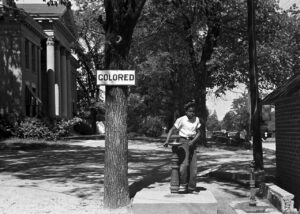
Discrimination is defined as the unfair treatment towards an individual or group based on their race, age, or sex. Discriminatory actions are often the basis for hate crimes.
The United States Department of Justice defines a hate crime as any act of “violence, property damage, or threat that is motivated in whole or in part by an offender’s bias based on race, religion, ethnicity, national origin, gender, physical or mental disability, or sexual orientation.” Discriminating against anyone based on one of those characteristics, whether it is real or perceived, is illegal and may be punishable in a federal court. There are two basic types of discrimination: direct and subtle. Direct discrimination involves actively victimizing someone in a clear and obvious manner; subtle discrimination entails persecuting people in a more covert and hidden way. Graffiti that contains racial slurs in considered an active form of discrimination, while excluding an individual from a group based on their gender or race demonstrates subtle discrimination.
One of the most common backdrops for discrimination occurs in the workplace. Previous to legislation, individuals could be refused a job based on their race, color, religion, sex, or national origin. The Title VII of the Civil Rights Act states that it is unlawful for an employer to fail or refuse to hire or to discharge any individual, or otherwise to discriminate against any individual with respect to his compensation, terms, conditions, or privileges of employment, because of such individual’s race, color, religion, sex, or national origin. The federal government also has established several laws to counter other forms of discrimination, including the Equal Pay Act, and the Americans with Disabilities Act.
Discrimination has affected people in many ways over the years, often violently. Sadly, people are often assaulted because of the color of their skin or their perceived sexual orientation. Any form of hate crime is illegal, whether direct or subtle. These crimes not only harm the victims, but they also disrupt the concept of basic human rights.
